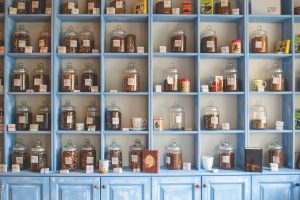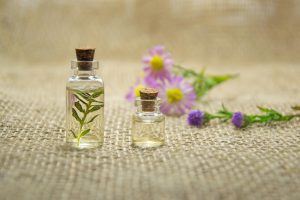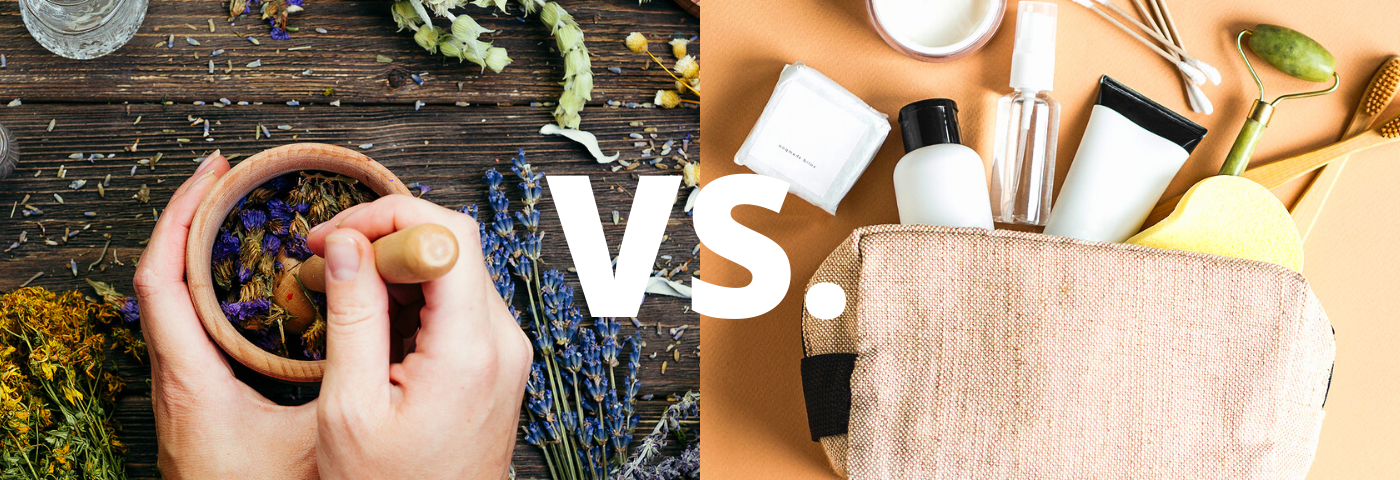The last few years have seen tried-and-test, traditional beauty treatments slowly work their way into the modern beauty space; this movement has been primarily driven by the rising demand for natural ingredients, a holistic lifestyle, and overall wellbeing. This is particularly true in Western and APAC markets and the trend is likely to become a priority as a result of the COVID-19 pandemic which has spurred consumers to develop a newfound appreciation for wellness and self-care.
In addition, the pandemic and the resulting lockdown has created a growing awareness for the environmental impact caused by consumer lifestyle choices. Here, the combination of a desire for an environmentally-friendly lifestyle, with an increased focus on wellness has resulted in a rise in traditional beauty treatments – based on their holistic approach and increased use of natural ingredients.
Ayurveda beauty
One such ancient practice that has witnessed a revival is Ayurveda Beauty. The 5,000-year-old Indian ‘science’ covers all aspects of life, including beauty. It highlights the importance of connecting the mind, body and soul, and promotes health through the use of natural ingredients demonstrating that beauty is not just skin deep but comes from within too. In recent years, there has been a growing interest in Ayurveda, as consumers are embracing various routes to wellness and expressing a greater desire for natural cosmetics.
Indian brand Forest Essentials is a pioneer of luxurious Ayurveda beauty and has been developing innovative products in this arena for the past 20 years. It has a diverse portfolio of high-performing creams and lotions made from natural ingredients that cater to four main categories – skincare, body care, haircare and wellness.
The success of its e-commerce platform highlights the growing Ayurveda movement as it supplies to more than 120 countries and has doubled its sales every year for the past three years. This trend is unlikely to halt as Forest Essentials have witnessed a global increase in demand for its skin and hair products since the easing of lockdown. It claims this is due to consumers becoming more particular about their personal care regimes, and that natural cosmetics and beauty rituals will become essential in the post-COVID world as people will strive for improved health.
Traditional Chinese Medicine (TCM)

Another ancient practise that is gaining traction in the cosmetic industry is Traditional Chinese Medicine (TCM), which has been in use for over 4,000 years. TCM uses a holistic approach to boost the body’s immune system and involves applying natural ingredients to combat a range of conditions.
The most common raw material category in TCM is herbals, which has enormous potential in the world of cosmetics. They satisfy the growing needs of consumers wanting natural, green products and can be combined in formulations to give a synergistic effect with great efficacy.
Personal care brands are adopting ingredients derived from this ancient practice to give products a competitive edge in the chemical-free market. For example, ginseng is being incorporated into the skincare formulations of brands across the globe, as research suggests that its major constituents, ginsenosides, help replenish cell nutrition, promote skin blood circulation, enhance collagen synthesis, and brighten the skin’s complexion.
Sulwhasoo is a Korean skincare brand that has been using ginseng since the company was founded in 1966, with ABC Ginseng Cream its first-ever product. Following many years of advancements in ginseng research, the company launched its Concentrated Ginseng Renewing Cream EX in 2000. The cream helps tackle anti-ageing and has proven to be the company’s highest-grossing and steady-selling product of the last two decades.
Natural Beauty, nutricosmetics and plant-based ingredients
Young consumers are more environmentally aware, leading many to reject chemical-filled cosmetics and opt for natural plant-based alternatives. A study by Euromonitor revealed that 55% of consumers look for natural ingredients when buying products, 41% look for eco-friendly, and 39% look for organic.
Consequently, the organic and natural beauty market has experienced annual double-digit growth for the past nine years and in 2019 grew by an impressive 23%. In addition, it is predicted to have a market value of $25bn by 2025.
This astonishing growth is pushing beauty giants to increase investment in organic R&D and acquire emerging natural brands to keep up; as demonstrated by L’Oréal’s acquisition of Logocos Naturkosmetik AG, the German beauty company which has pioneered the use of natural cosmetics.
Consumer desire for innovative natural beauty products is driving the use of new ingredients derived from traditional plants and herbs. These may provide the key to discovering the next big ingredients, as plants have evolved the ability to produce useful compounds that enable them to minimise environmental stress and damage.
For example, these components may help absorb UV rays, capture water, or possess antioxidant properties, all of which are beneficial in the cosmetic industry.
This is particularly the case in the APAC region which is inhabited by a unique array of flora. For example, researchers in French Polynesia investigated the properties of plants used in traditional Polynesian cosmetics to assess their suitability for use in the modern personal care industry. They identified the extracts of several indigenous plants that may have great potential for use in natural cosmetics due to their anti-ageing, hair growth, and skin whitening properties.
Clean Beauty

Clean beauty refers to products made without ingredients shown or suspected to damage human and environmental health. It is often confused with natural beauty as clean products are frequently organic and use traditional ingredients, however, this is not a requirement as many synthetic ingredients are also safe to use.
A staggering number of new cosmetics fit the clean beauty criteria in some way or another as brands strive to satisfy this growing trend. Clean products are gaining increased attention among APAC consumers with GlobalData claiming 35% are looking for cruelty-free beauty products. The movement even has backing from celebrities – earlier this year tennis player Venus Williams partnered with clean beauty retailer Credo to launch and develop her sun care brand, EleVen.
Speciality chemical company Azelis is predicting an incline in clean beauty products because of the coronavirus pandemic, with people seeking greater health and wellness. This is particularly the case in India due to the nation’s deep-rooted belief in Ayurveda. The company suspects a heavy focus on clean skincare products will emerge in the near future as environmental changes, stress, and shifts in diet, caused partly by lockdowns, have resulted in a sharp rise in skin conditions, such as eczema and the newly coined ‘mascne’.
However, traditional beauty does not come without challenges across all levels of the personal care industry. The natural cosmetics market, for example, poses problems for consumers and manufacturers as it lacks globally accepted definitions, resulting in some brands using certain claims to appear ethical.
Problems also arise for formulators when translating ancient practices – such as TCM and Ayurveda – to create modern beauty products, because fresh herbal ingredients have a short shelf-life and oxidise quickly. However, these are challenges that can be overcome via standardised routes to natural certification, or through innovative storage methods such as PUREARTH’s Miron Violetglass bottles which preserve the bio-active energy of fresh ingredients.
It is clear that traditional beauty will become increasingly prominent in the cosmetic industry as the natural, organic, and clean beauty trends continue to grow, and ancient beauty practices are adopted by millennials embracing holistic wellness trends. This is particularly relevant in light of the global pandemic which has spurred more people to turn to self-care and seek improved health.
Stay up-to-date with the most current trends and ingredients in the industry with in-cosmetics Asia. And this year, we’re bringing the event to you! Find industry specialists and schedule online one-on-one meetings with suppliers from all over the globe at our digital event, in-cosmetics Virtual, taking place on 6 – 8 October 2020. Registrations are already open!
Also on the Road to in-cosmetics Asia Series…
Male grooming and men’s makeup on the rise | Episode 10
The Millennial Effect | Episode 9
Fragrance for cosmetics | Episode 8
Haircare and scalp treatments | Episode 7
Probiotic Skincare: topical use and supplements | Episode 6
Nutricosmetics and the vegan beauty trends | Episode 5
Ageless beauty: Mature personal care | Episode 4
Beauty & technology: ready for the future of cosmetics? | Episode 3
Gen Z: What do they look for in personal care & beauty products? | Episode 2

